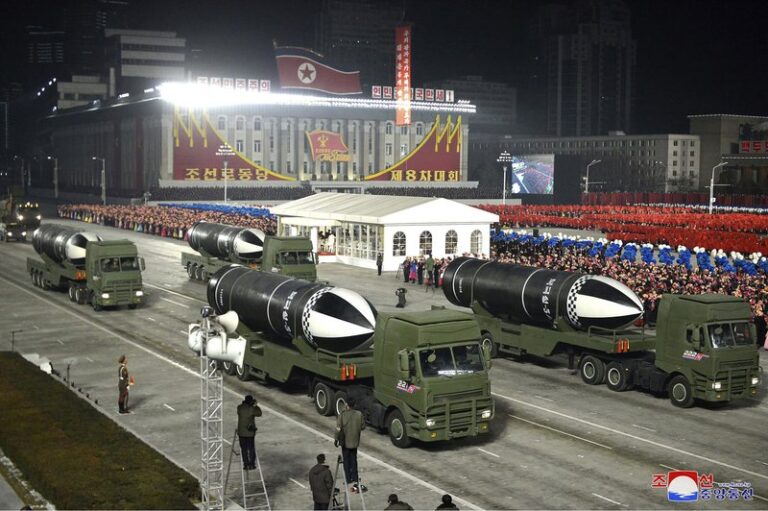
(AP) — Last year was a disaster for North Korean leader Kim Jong Un.
He helplessly watched his country’s already battered economy decay further amid pandemic border closures while brooding over the collapse of made-for-TV summits with former President Donald Trump that failed to lift crippling sanctions from his country.
Now he must start all over again with President Joe Biden, who has previously called Kim a “thug” and accused Trump of chasing spectacles instead of meaningful reductions of Kim’s nuclear arsenal.
While Kim has vowed to strengthen his nuclear weapons program in recent political speeches, he also tried to give Biden an opening by saying that the fate of their relations depends on whether Washington discards what he calls hostile U.S. policies.
It’s unclear how patient Kim will be. North Korea has a history of testing new U.S. administrations with missile launches and other provocations aimed at forcing the Americans back to the negotiating table.
In recent military parades in Pyongyang, Kim showcased new weapons he may test, including solid-fuel ballistic systems designed to be fired from vehicles and submarines, and the North’s biggest intercontinental ballistic missile.
A revival of tensions would force the U.S. and South Korea to reckon more deeply with the possibility that Kim may never voluntarily deal away the weapons he sees as his strongest guarantee of survival.
Kim’s arsenal emerged as a major threat to the United States and its Asian allies following tests in 2017 that included a detonation of a purported thermonuclear warhead and flight tests of ICBMs that demonstrated the potential to reach deep into the American homeland.
A year later, Kim initiated diplomacy with South Korea and the U.S., but it derailed in 2019 when the Americans rejected North Korea’s demands for major sanctions relief in exchange for a piecemeal deal partially surrendering its nuclear capabilities.
North Korea won’t likely be the top priority for Biden, who while facing mounting domestic issues is also gearing up for a push to get back into a 2015 nuclear deal with Iran that Trump blew up in favor of what he called maximum pressure against Iran.
The Biden administration’s “sequence of policy attention will likely be: Get America’s own house in order, strengthen U.S. alliances and align strategies toward China and Russia, and then address Iran and North Korea,” said Leif-Eric Easley, a professor at Ewha University in Seoul.






